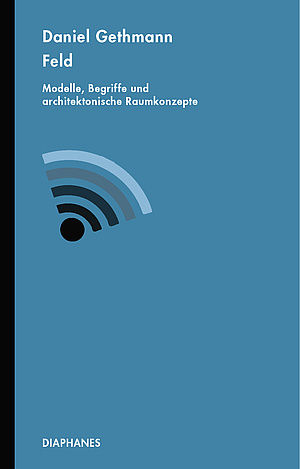Daniel Gethmann (2016), Field: Models, Terms, and Architectural Spatial Concepts, Institute of Architectural Theory, Art History and Cultural Studies
Committee: Milica Tomić, Stefan Peters, Anselm Wagner, Andreas Lechner, Lung Peng
Reviewers: Susanne Hauser, Markus Krajewski, Wolfgang Schäffner
301 pages, German.
This habilitation thesis explores the transformations that the concept of the field has undergone from the natural and cultural sciences to present-day architecture. Mediated through scientific models and diagrams that simulate and illustrate processes of relational connectivity in spatial fields, in the context of architecture spatial concepts emerge that unfold within a referential system of relations, of interactions and spaces of potentiality, thus expanding an object-related concept of design related to the referential system of immaterial fields.
The historical analysis of this development is geared to the junctions where a transfer of models, image technology, terminology, and spatial concepts takes place among the various domains of knowledge. It becomes clear on which level cultural scientists like Ernst Cassirer, Kurt Lewin, and Pierre Bourdieu were referencing a concept of the field informed by the natural sciences, already formulated by Michael Faraday and James Clerk Maxwell in the nineteenth century, in order to then in turn develop cultural-scientific concepts of the field. Lastly, these different approaches and analyses are adopted by architectural theory and spatial design and then further developed as fundamental spatial concepts for design- and architecture-related activity in the present.

